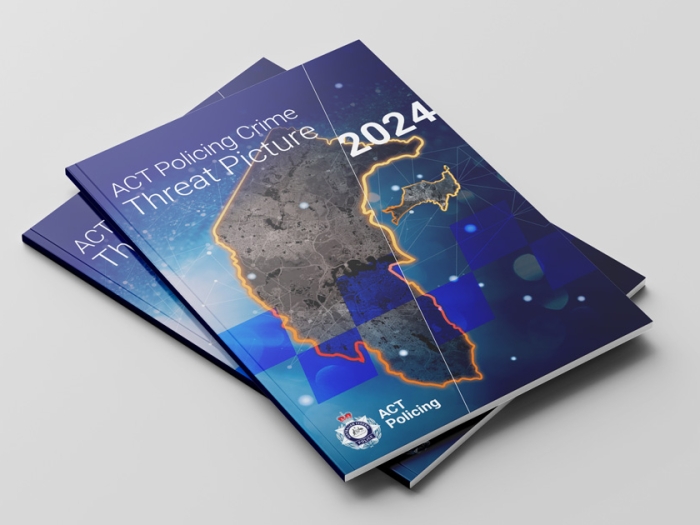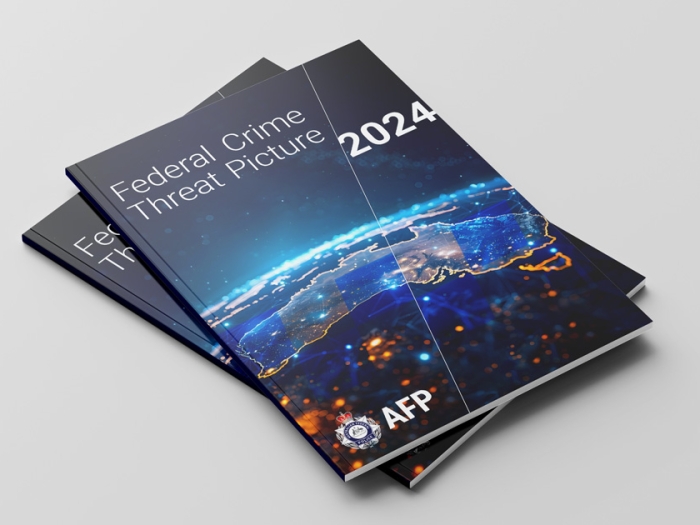Our capabilities and enablers
The AFP’s capabilities and enabling functions support the delivery of priorities and core business activities. Corporate services and specialist support is delivered across the AFP’s three outcomes. Business support partners are in place to support each of the Commands.
The AFP takes a cohesive and strategic approach that aligns bottom-up operational needs with top-down enterprise solutions and opportunities. This approach acknowledges that:
- delivering maximum impact on the criminal environment involves substantially the same capabilities, to varying degrees, regardless of the crime type or operating environment
- multiple operational, technical and support capabilities must align and collaborate to maximise operational effect
- supported by quality leaders, there must be a mix of people, process, tools and technology elements in developing and delivery of capabilities for operational effect
- efficiency and effectiveness is maximised in capability development through shared acquisition, sustainment and delivery approaches
- capabilities must flexibly align to both current and future operating environments, particularly as technology and other elements continue to provide major disruptive opportunities and challenges.
Through 2020–21, the AFP undertook a review of its enabling services. Findings from this review will be used to improve our enabling functions in response to the challenges that arise from our operating environment. Enhancements to the delivery of governance, structures, supporting systems, processes and information management services will enable a more agile, innovative approach to supporting the AFP’s operations.
Our people
The AFP recognises the value of our people and the critical role they play in achieving the organisation’s objectives. We are committed to ensuring we have the right people in the right places, now and into the future.
Our operating environment is broad and dynamic. Delivering maximum impact requires a workforce that can meet current demands and leverage diverse skills, knowledge, and experience to deliver new and innovative solutions to emerging needs.
To achieve this, we will strategically plan and develop the pipelines and programs that build, sustain and continuously shape our people capabilities and capacities.
We remain committed to fostering a culture where our people feel safe, connected and respected. To achieve this, our People and Culture Command is continuing to deliver initiatives that embed cultural awareness and inclusivity, maintain an ambitious approach to diversity, and ensure we formally recognise our people’s achievements and traditions.
We will continue to prioritise the health and wellbeing of our people by building our existing programs through incremental operationalisation of the SHIELD program across the AFP’s various geographic locations. SHIELD responds to our challenging operating environments by evolving our staff health and wellbeing approach. It will deliver new and enhanced capabilities and facilities, with a particular focus on prevention and early intervention.
The AFP Reserve will work in concert with SHIELD, to assist members to transition to retirement and continue their community service contribution. More broadly, the AFP will develop and implement a transition to retirement program for current AFP members including those wishing to continue their service through the AFP Reserve.
Finance and infrastructure
The AFP has robust financial management and reporting processes. Our finance function provides advice and assurance on the strategic management of the AFP’s finances including budget allocation and compliance with internal and external requirements. The AFP has an ongoing commitment to ensure its infrastructure and property supports its current and future capability requirements.
Property is a critical enabler of the capabilities of the AFP and affects all aspects of the organisation, affecting where and how people work and therefore contributing significantly to the AFP’s environment and culture. The AFP’s Strategic Property Plan will provide a framework for all property investment. It informs decisions at an operational, tactical and strategic level.
Technology and forensics
In keeping with the rest of society, crime is more digitised, globalised and connected. Crime now exists as a hybrid of the physical world and the digital world. Our connected world offers criminals and terrorists increased access to potential victims and funds. Modern modes of offending are often hidden and remote, and can impact at a never-before-seen scale and seriousness.
But technological advantages are also available to the AFP. By combining our knowledge of crime and policing powers with modern technologies, we are outsmarting criminal networks with greater speed, reach and impact through innovative prevention and disruption strategies and enforcement of the rule of law. The AFP manages information as an asset, ensuring we enable our frontline members, connect with our numerous partners and work efficiently.
The AFP’s forensics function supports the frontline through science and technology expertise and excellence. It maximises the AFP’s operational effect by providing specialist forensic and technical services to support investigations and operations.
Intelligence
Intelligence provides a picture of the criminal threats and harms relevant to AFP activity. Our functions deliver intelligence to enhance strategic decision-making and operational outcomes, identify gaps in corporate knowledge, convergences in criminal activities and criminal targets.
We share information and intelligence on law enforcement and national security matters with key domestic and international law enforcement partners, where appropriate.
Legal services
The Chief Counsel Portfolio performs a critical role in identifying and managing legal risk for the AFP.
AFP Legal provides independent legal advice and litigation services across the entirety of the AFP’s operations and corporate functions, including services to ensure the AFP meets its freedom of information and privacy obligations. Criminal Assets Litigation is a team of specialist litigators who, as a part of the Criminal Assets Confiscation Taskforce, undertake proceeds of crime litigation focussed on delivering a maximum impact on crime by depriving persons of the proceeds, instruments, and benefits derived from criminal conduct.
Professional Standards
Our Professional Standards framework supports the AFP to maintain, promote and enhance integrity. This includes a proactive integrity framework incorporating the development and delivery of misconduct and corruption prevention strategies. It also encompasses complaint management through investigation and resolution of misconduct, practices issues and corruption matters.
Strategy and Performance
Our Strategy and Performance Office maximises the AFP’s operational impact by translating the agency’s strategic intent into whole-of-AFP activity. It plays a critical role in managing enterprise priorities, nurturing strategic thinking into reforms and resourcing, facilitating strong enterprise decision-making, and continuously improving outcomes by articulating performance, outcomes and value to the community. It includes ministerial and parliamentary liaison, policy coordination and governance functions supporting the AFP’s strategic direction.
Learning Services
The AFP’s learning services support the AFP to develop and maintain a skilled and capable workforce. Our Learning Command drives the AFP to acquire knowledge, develop skills and create a learning culture that enables us to thrive and outsmart serious crime.
Security
The AFP has a multifaceted approach to safeguarding our people, information, assets and reputation. To operate successfully, it is critical we maintain a strong protective security capability and culture comprising information security, physical security, vetting, security awareness and governance and risk frameworks.
Media and Communication
The AFP strives to maintain an effective, best-practice communications capability to support our people and our operations. The media and communication functions play a key role in promoting AFP initiatives, campaigns and operational successes to internal and external stakeholders.





